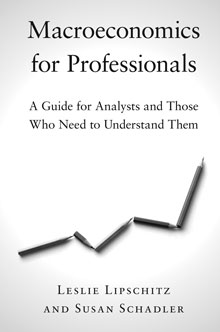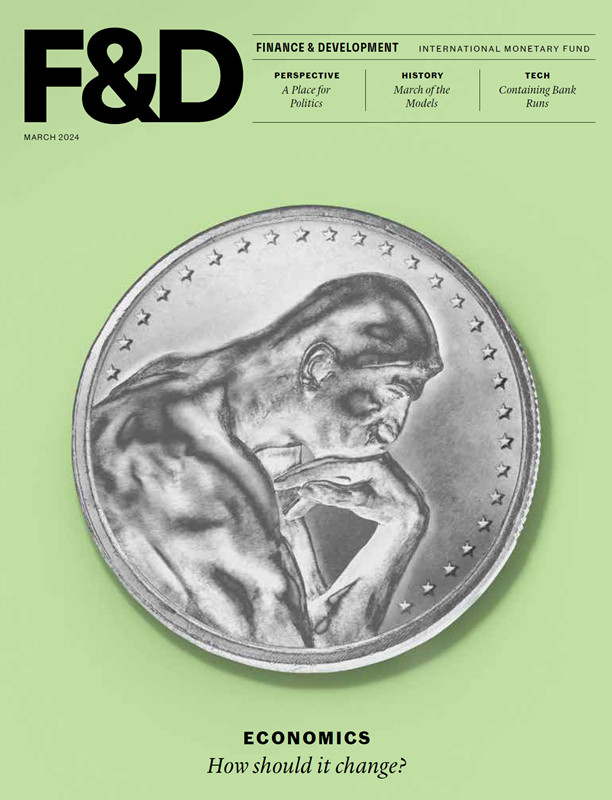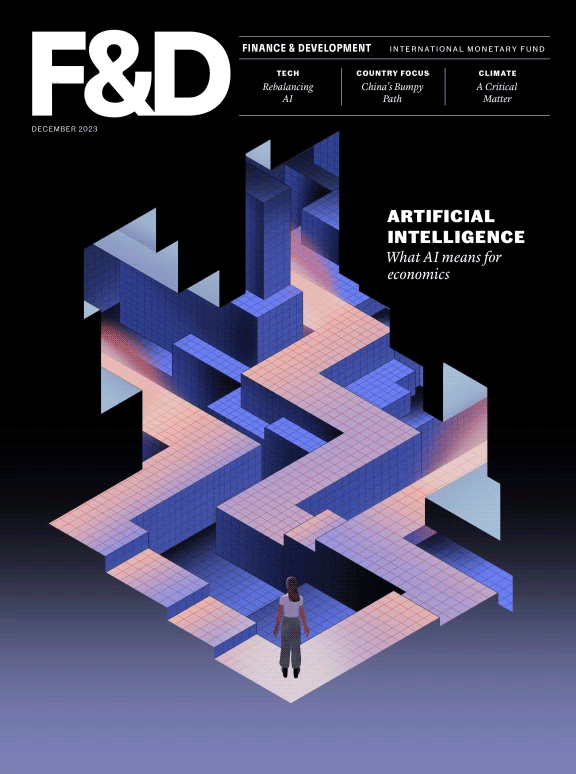Leslie Lipschitz and Susan Schadler

Macroeconomics for
Professionals: A Guide for
Analysts and Those Who
Need to Understand Them
Cambridge University Press,
Cambridge, UK, 2019, 308 pp., $39.99
Just as medical students must be seasoned as interns, the IMF teaches its new economists how to transition from a theoretical, model-driven view of an economy to an understanding of how a real country’s economy actually behaves. Like the human body, a country’s economy reflects the composite operation of many specialized “macro” organs—the real economy, the fiscal sector, and the monetary and financial sectors—that interact with one another and with the rest of the world. Understanding the nitty-gritty of how these different organs function, and whether they are performing well, is as much art as science.
The IMF’s approach to such an education relies in part on an apprenticeship model and in part on short bursts of training from its teaching and capacity development unit. This wise book, Macroeconomics for Professionals—the collaboration of two former senior IMF staffers—distills the essence of the basic analytical framework the IMF uses to understand a country’s economic reality.
Leslie Lipschitz and Susan Schadler provide a superb road map for assessing a country’s policies. It is relevant not only for new IMF economists but also for analysts in investment banks, rating agencies, finance ministries, and central banks, as well as for economic journalists seeking to bridge the gap between theory and real-world practice. Indeed, this book would enhance economics training in graduate schools of public policy.
Separate chapters elucidate the analytical and statistical frameworks that underlie the macroeconomic sectors, the data measures that explain their operation, and the role of normative diagnostic indicators pertinent to sectoral assessments. The authors highlight the challenges of determining the direction of causality in the movement of key economic variables. Historical case studies and exercises in both the book and the online workbook highlight the limitations of policy guidance, gleaned from the frameworks. Effectively, the book allows the reader to consider the challenges policymakers face when making critical decisions, using all available tools and data to help narrow the scope of inevitable uncertainties.
Finally, the book implicitly provides the necessary cautionary perspective that high-level officials and policy analysts in government are too often “fighting the last war.” We are now in a century where the combination of rapid technological change and (still not fully understood) environmental forces may soon give rise to unexpected and substantial systemic or country-specific shocks. The economic verities of 2050, let alone those of 2100, threaten to be very different from those of today. Policymakers will be challenged to innovate responses—most likely untested—quickly to limit economic and social damage. The framework of global economic policy coordination cannot be so easily analyzed in a book of this kind. Yet the need for effective coordinated policy responses is both important and urgent.
Opinions expressed in articles and other materials are those of the authors; they do not necessarily reflect IMF policy.








